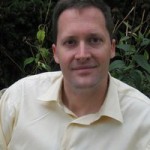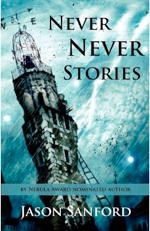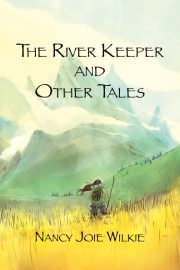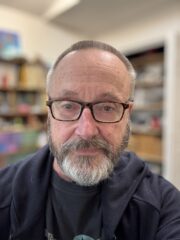Guest Post: When You Have a Chance to Meet an Editor, Say Hello!
by Jason Sanford
 One of the highlights of last weekend’s Context convention – aside from hanging with great people like John Scalzi, Maurice Broaddus, John Hornor Jacobs, and Jason Sizemore – was having the opportunity for a detailed discussion with David Hartwell. In case you don’t know, Hartwell is a top editor with Tor Books and has decades of experience in the science fiction field. He has worked with a number of big name authors, including Philip K. Dick and Gene Wolfe (and was intimately involved in editing Wolfe’s influential series The Book of the New Sun, which is one of the best literary works of the entire 20th century).
One of the highlights of last weekend’s Context convention – aside from hanging with great people like John Scalzi, Maurice Broaddus, John Hornor Jacobs, and Jason Sizemore – was having the opportunity for a detailed discussion with David Hartwell. In case you don’t know, Hartwell is a top editor with Tor Books and has decades of experience in the science fiction field. He has worked with a number of big name authors, including Philip K. Dick and Gene Wolfe (and was intimately involved in editing Wolfe’s influential series The Book of the New Sun, which is one of the best literary works of the entire 20th century).
Hartwell and I sat beside each other at a “Meet the Authors” event and talked a good bit. One thing which stuck with me–and which Hartwell said I was free to share with others–was his shock at how few new writers had approached him at this convention. Considering that Context is geared toward writers, Hartwell expected a number of new authors to either pitch their novels or, if they didn’t have a book ready, to at least introduce themselves. Instead, I was evidently one of the few writers he didn’t personally know who engaged him in conversation.
This totally blew my mind. I mean, if you’re serious about making it as a science fiction writer, why wouldn’t you go up to a prominent SF editor and introduce yourself? Even if you get nervous around editors or don’t have much to say, at least shake the man’s hand. That way if you ever submit something to Hartwell you’re not a total stranger.
As I mentioned, Context is aimed at writers, so I’m at a loss to explain why more writers didn’t approach Hartwell. The only thing I can figure out is that there are a number of new authors out there who feel traditional publishing houses are not for them. One person I talked to at Context described these new authors as part of the “self-publishing subculture,” which believes that to be a successful author all you need do is self-publish your book and attend conventions, where you sell copies to fellow authors who are also hawking their own self-published books.
Personally I feel that view is too dismissive of self-publishing, but it has a bit of truth. We’ve all met authors who believe success means selling a few dozen copies of their self-published book to friends and family. And if that’s all they want, more power to them. But as a writer, I want to reach as many readers as possible. If self-publishing will do that, great. If traditional publishing will, that’s also good. But no matter the route you take, one of the vital keys to writing success is to learn all you can about our industry.
Whether you want to self-publish your novel or are trying to land a traditional publishing contract, it is in every author’s interest to make connections and talk with the editors in our field. And not simply because these editors might be able to help you with your career (although that is a big plus – remember, every editor out there lives for the moment when they discover a hot new writer). You see, editors are also a great source of information on what’s going on in our genre and how the speculative fiction business works. This is information every author needs to know.
And to top it all off, most editors are fun people to talk to.
Yes, it would be nice if one day I’m able to submit a novel to David Hartwell and he remembers who I am. But equally as important, I had a great time talking with him. I learned a number of things about our genre I didn’t know before.
So the next time you go to a con, say hello to the editors.
•••
 Jason Sanford has published a number of stories in Interzone, where he’s won their last three Readers’ Polls. Interzone also recently released a special issue focused on his fiction. His other publication credits include Year’s Best SF 14, Analog, Intergalactic Medicine Show, Tales of the Unanticipated, The Mississippi Review, Pindeldyboz, and Diagram. His short story collection Never Never Stories was recently released. For more information on the collection, go to his website, where this post first appeared.
Jason Sanford has published a number of stories in Interzone, where he’s won their last three Readers’ Polls. Interzone also recently released a special issue focused on his fiction. His other publication credits include Year’s Best SF 14, Analog, Intergalactic Medicine Show, Tales of the Unanticipated, The Mississippi Review, Pindeldyboz, and Diagram. His short story collection Never Never Stories was recently released. For more information on the collection, go to his website, where this post first appeared.


